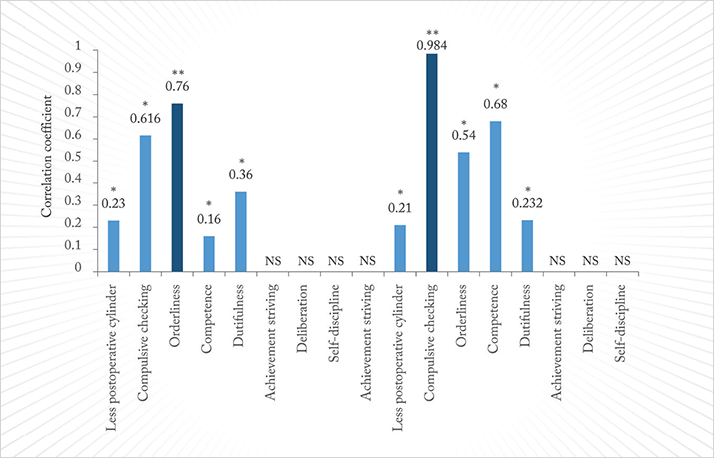
If a patient wants to be able to discard their spectacles after cataract surgery, they’re going to have to have a premium intraocular lens (IOL) implanted during the procedure. Whether the IOL is referred to as having an “extended depth of focus” or “exceptional visual quality across a broad range of vision”, the patient needs one that’s multifocal. Most patients are happy with the results – multifocal IOLs – studies have shown that approximately four in every five patients are satisfied with their (spectacle-free) vision… but there remains a small population of dissatisfied patients – even though postoperative clinical assessments show no reason for unhappiness. As Charles McGhee puts it: “There’s 20/20 vision, then there’s 20/20 happy.”
The “Happy Patient Study” (1) is the first to prospectively assess personality factors that may influence patient satisfaction after receiving multifocal IOLs. The authors surveyed 183 candidates for bilateral multifocal IOL implantation, ranging in age from 19 to 82 years. Patients first completed questionnaires about their personality characteristics, level of compulsiveness and understanding of what the multifocal IOL procedure involved. They each went on to undergo the same operation – a small-incision surgery with phacoemulsification and a targeted rhexis of 5 to 5.5 mm – and were evaluated at three and six months postoperatively for visual and refractive outcomes, photic phenomena like glare and halos, and overall satisfaction. By correlating postoperative reports with preoperative personality inventories, the authors determined four psychometric parameters that had a significant effect on patient satisfaction.

The characteristic that had the most effect on satisfaction was “compulsive checking” – that is, the need to perform repeated checks (on anything from door locks to news headlines) to calm obsessions. This was closely followed by orderliness, competence and dutifulness. All four parameters were correlated, not directly with patient contentment, but with the perception of glare or halos, which in turn translated to a likelihood of postoperative dissatisfaction (Figure 1). Although such patients can’t be excluded from multifocal IOL implantation purely on the basis of personality, the Happy Patient Study does show that careful candidate selection should rely not only on biometry, ophthalmologic findings and preoperative astigmatism, but also on psychological characteristics. The study authors suggest the development of a condensed psychometric questionnaire that can be administered to detect patients with a higher probability of postoperative dissatisfaction. By identifying people who may be unhappy even when their clinical findings are good, surgeons might be able to explain the potential side effects and the patients’ possible intolerance to them in more detail prior to surgery – which might help patients avoid the procedure if the side effects are unacceptable, and would help surgeons avoid potentially unsatisfied patients – and the can of worms that can open.
References
- U. Mester, T. Vaterrodt, F. Goes, et al., “Impact of Personality Characteristics on Patient Satisfaction After Multifocal Intraocular Lens Implantation: Results From the ‚Happy Patient Study‘”, J. Refract. Surg., 30, 674–678 (2014). doi :10.3928/1081597X-20140903-05.
